A Beginner's Guide to Financial Wellness
Money is something many of us take for granted, but understanding it is essential to achieving financial freedom and stability. For those who have not yet learned the basics of money management, it can feel overwhelming to even know where to begin. But don’t worry even every expert was once a beginner.
The Importance of Financial Education
Financial education is the foundation of making savvy decisions about money. The good news is that it's never too late to start learning. From budgeting to saving, investing to managing debt, gaining financial knowledge is the first step toward reclaiming control over your life.
Start with Budgeting
A budget is your financial roadmap. Without one, you’re driving blind. To start, you need to categorise your expenses and track them. Basically, how much are you spending on necessities like rent, utilities, and food? How much are you spending on entertainment, subscriptions, and shopping? It is essential to understand where your money is going. Without this clarity, it’s impossible to take steps toward managing your finances better.
Prioritising Your Financial Responsibilities
When life gets hectic, it’s easy to lose track of priorities, and finances are no exception. If you have a lot of financial responsibilities such as debts, bills, family support; it can feel like everything is urgent. But not all financial obligations are created equal.
- Start with your essentials: Ensure you cover your most basic needs first, such as housing, food, and utilities.
- Tackle high-interest debts: Pay off debts that have the highest interest rates, such as credit cards, as quickly as possible.
- Save for emergencies: Life is unpredictable, and building an emergency fund can provide peace of mind and protect you from financial setbacks.
Understanding Debt and How to Get Out
Many people feel trapped by their debts. The first thing to understand is that debt can be managed. But it requires a clear plan and discipline. Start by listing all your debts and their interest rates. Then, choose a repayment strategy that works for you, whether it is the snowball method (paying off the smallest debt first) or the avalanche method (paying off the highest-interest debt first). Avoid taking on more debt as you work toward paying off existing balances, and consider finding ways to reduce your interest rates, such as consolidating debt or negotiating with creditors.
Making Your Money Work for You
Once you have a handle on your income, expenses, and debt, it is time to make your money work for you. This might mean setting up automatic savings or investing in retirement plans. The sooner you start, the more time your money has to grow. Even small contributions to a savings account or investment fund can make a big difference over time. The goal is to be proactive with your money, not reactive. By setting goals, creating habits, and tracking progress, you can put yourself on a path to financial wellness.
If you’ve struggled with money in the past, you're not alone. The road to financial wellness starts with taking small, manageable steps. The key is to educate yourself, prioritise your responsibilities, and start making better choices today. It's time to take control of your financial future.
To start your journey toward financial wellness, check out Money Savvy Wellness Programme 1 (Let’s Begin) which is a resource designed to help you gain control of your finances, step by step. Whether you're just starting or ready to take your money management skills to the next level, we have the tools and support to help you succeed.







